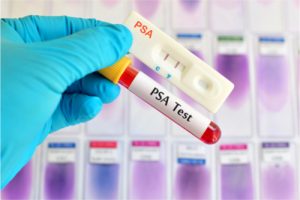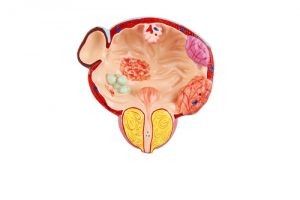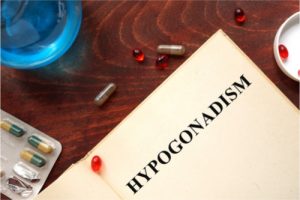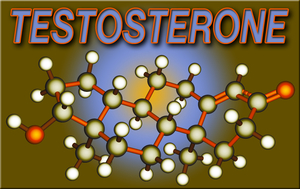 As Bio-Identical Testosterone Treatments become more widely offered by Hormone Specialists across the United States, a great debate has been waging over the long-term safety of Testosterone Replacement Therapy.
As Bio-Identical Testosterone Treatments become more widely offered by Hormone Specialists across the United States, a great debate has been waging over the long-term safety of Testosterone Replacement Therapy.
Undeniably, Testosterone Creams, Patches, and Injections provide some real benefits that significantly improve patients' quality of life. For example, Low-T Therapy enhances energy levels, body composition, libido, and psychological wellness in patients suffering from Hypogonadism.
Video Link: https://vimeo.com/290601222
Video Download: Click Here To Download Video
Video Stream: Click Here To Stream Video
Risks of Testosterone Therapy
On the other hand, there has always been the fear that Testosterone Therapy can have long-term consequences, especially in the areas of heart health and prostate health.
This concern and the widespread use of Recombinant Testosterone Therapy has led to a veritable explosion of Testosterone Research since the turn of the century.
Testosterone and Cardiovascular Health
Prior research showed that Testosterone Treatments could negatively impact heart health, increasing the risk of heart attack, stroke, and atherosclerosis.
heart health, increasing the risk of heart attack, stroke, and atherosclerosis.
Fortunately, as the body of research has developed and HRT Therapy Techniques have advanced, it appears that this risk is vastly overstated when Testosterone is prescribed and used as directed.
The bulk of the risk comes from the abuse of Testosterone Therapy and poor diagnostic practices.
More studies must be conducted, but at this time, it appears that—for patients suffering from Age-Related Hypogonadism—Testosterone Replacement has a beneficial effect on heart health when used as directed and monitored appropriately by clinical professionals.
Testosterone and Prostate Cancer
Another area of study regarding the use of Testosterone Replacement Therapy is about the effect of low-T treatment on Prostate Cancer Risk.
Two long-known factors about Testosterone Replacement Therapy have made this research necessary.
 First, Bio-Identical Testosterone causes an increase in a specific Prostate Cancer marker known as Prostate-Specific Antigen.
First, Bio-Identical Testosterone causes an increase in a specific Prostate Cancer marker known as Prostate-Specific Antigen.
At first, it was believed that this rise in PSA could have a direct correlation with Prostate Cancer. In the absence of Low-T Treatment, elevated PSA levels are a direct byproduct of Prostate Cancer. Further study has shown, however, that increased PSA Levels due to Testosterone Replacement Therapy are entirely benign.
 Second, Testosterone Replacement Therapy can lead to an increase in Prostate Size.
Second, Testosterone Replacement Therapy can lead to an increase in Prostate Size.
This risk appears to be highest in patients suffering from Benign-Prostatic Hyperplasia.
This means that patients who are already suffering from symptoms of prostate enlargement may experience worsening symptoms. Current hypotheses link BPH to elevated levels of DHT in the bloodstream.
Research suggests that Testosterone Replacement Therapy may even have a protective effect against the development of BPH in patients suffering from low T.
Can Testosterone Therapy Reduce the Risk of Prostate Cancer in Men With Clinical Hypogonadism?
Luckily, some studies have come out in recent years that are helping us understand the link between Prostate Cancer and Low-T more fully.
A German Urologist named Ahmad Haider worked with colleagues in the field of urology to help reveal the effect of Testosterone Therapy on the prostate.
The research was released in San Antonio, Texas, during a conference presented by the Sexual Medicine Society of North America. Dr. Haider found that Testosterone Therapy appeared to lessen the severity of Prostate Cancer among patients diagnosed with the condition.
Also, the doctor found that patients utilizing Low-T Therapy had a lower incidence of Prostate Cancer diagnosis in general.
German Prostate Cancer Study
In this study, 400 men with low T were analyzed, all with T levels at or below 350 ng/dL.
Men in the experimental group took Bio-Identical Testosterone Injections every three months for a maximum of ten years. The specific Low-T Formulation was 1 gram of Testosterone Undecanoate per Low-T Shot.
These men were compared to 376 male patients who chose not to use Testosterone Therapy.
Effect of Low-T Therapy on Prostate Cancer Incidence
After at least eight years of treatment, only 9 of the 400 Testosterone Therapy Patients experienced Prostate Cancer, whereas 26 of 376 control patients experienced the condition. This difference was found to be highly significant.
Effect of Testosterone Replacement on Prostate Cancer Severity
Patients diagnosed with Prostate Cancer underwent three forms of treatment — Radical Prostatectomy, Radiation Therapy, or a combination of the two. The severity of prostate cancer is rated on what is known as the Gleason Scale.
A Gleason Score of 6 or less is considered less severe, and 7-10 is considered more severe and dangerous. Among nine patients taking Testosterone who experienced Prostate Cancer, only one had a Gleason Score over 6. All of these patients had Grade Two, Stage Two Tumors.
The case for patients in the Control Group was entirely different. Two were treated by radiation, six patients underwent combination therapy, and 18 were treated via Radical Prostatectomy.
Every patient in the control group had a Gleason Score of 7 or above, and most patients had Grade Three, Stage Three Tumors. Only six had Grade Two Tumors, and just one was still in Stage Two.
Testosterone Therapy Appears to Help Reveal Prostate Cancer
 Interestingly enough, Testosterone Therapy may be beneficial to patients with undiagnosed prostate cancer because it increases the ability of instruments to detect Prostate Cancer.
Interestingly enough, Testosterone Therapy may be beneficial to patients with undiagnosed prostate cancer because it increases the ability of instruments to detect Prostate Cancer.
By restoring healthy Testosterone Levels, Prostate Cancer became more readily apparent and easier to treat before its severity increased. For patients who did not opt for Testosterone Therapy, the cancer was not detected until it reached later stages, increasing the risk to the patient.
Previous Studies Corroborate New Prostate Cancer / Testosterone Therapy Findings
NYU Researchers Published a Prostate Cancer Study in the Journal of Clinical Oncology, which evaluated medical records of 38,570 Swedish medical patients with Prostate Cancer and 192,838 patients without Prostate Cancer.
Among those with Prostate Cancer, 284 patients took Prescription Testosterone, and 1,378 cancer-free patients used Testosterone. This study found no link between Prescription Testosterone and Prostate Cancer Risk.
Furthermore, men taking Prescription Testosterone were more likely to catch cancer in the earliest stages and were much less likely to experience the condition in its later, more dangerous stages.
Another study was conducted by the University of Toronto, evaluating the effects  of Testosterone Therapy on Prostate Cancer in Canadian men of at least 66 years of age.
of Testosterone Therapy on Prostate Cancer in Canadian men of at least 66 years of age.
They discovered that men who were prescribed Testosterone for Hypogonadism had a much lower incidence of Prostate Cancer than those who did not receive therapy.
The control group experienced prostate cancer forty percent more often than the Low-T Treatment Group. This study involved nearly 40,000 patients, just over 10,000 of which took Prescription Testosterone. Patients were followed for a bit over five years on average.
A third study, published just this year in Germany, found similar results. This study evaluated Prostate Cancer's incidence and severity and compared patients using Testosterone to those with low T and total Eugonadal Impairment.
Agents from the Institute of Urology and Andrology compared results from prostate biopsy exams.
They found that men utilizing Bio-Identical Testosterone experienced Prostate Cancer at around 1/3rd of the rate of the control group among men who had undergone a prostate biopsy.
Eugonadal males had a Prostate Cancer rate less than control but more than the experimental group. Men taking Testosterone also had significantly less severe Prostate Cancer when detected.
Reference
Testosterone and prostate cancer: an evidence-based review of pathogenesis and oncologic risk
Contact Us Today For A Free Consultation

- Testosterone for Women [Last Updated On: December 1st, 2023] [Originally Added On: December 29th, 2013]
- Testosterone Androgen [Last Updated On: December 11th, 2023] [Originally Added On: December 29th, 2013]
- Testosterone and Body Building [Last Updated On: December 14th, 2023] [Originally Added On: December 30th, 2013]
- Testosterone Levels [Last Updated On: December 6th, 2023] [Originally Added On: December 31st, 2013]
- Testosterone Gel, Cream, and the Testosterone Patch [Last Updated On: November 28th, 2023] [Originally Added On: December 31st, 2013]
- Buy Testosterone | Types of Testosterone Replacement Therapy Programs, Injections, Cream and Gel [Last Updated On: December 13th, 2023] [Originally Added On: December 31st, 2013]
- Buy Testosterone Injections Online, Testosterone Prescription for Low T, Testosterone Replacement Therapy [Last Updated On: October 16th, 2020] [Originally Added On: January 1st, 2014]
- Aging and Testosterone Replacement Therapy [Last Updated On: December 12th, 2023] [Originally Added On: January 3rd, 2014]
- What Causes Low Testosterone [Last Updated On: December 10th, 2023] [Originally Added On: January 7th, 2014]
- Hormone Levels in Men [Last Updated On: December 4th, 2023] [Originally Added On: January 12th, 2014]
- Hormone Level Testing [Last Updated On: November 29th, 2023] [Originally Added On: January 13th, 2014]
- Types of Testosterone Products and Delivery [Last Updated On: December 8th, 2023] [Originally Added On: January 22nd, 2014]
- The Importance of Dietary Fat for Testosterone Production [Last Updated On: July 8th, 2024] [Originally Added On: January 2nd, 2020]
- Testosterone Deficiency and Low-T at Epidemic Levels Among Men in the United States [Last Updated On: May 27th, 2024] [Originally Added On: May 17th, 2020]
- The Effects of Testosterone Therapy on Male Patients -- Who Should Use Testosterone? [Last Updated On: December 20th, 2023] [Originally Added On: June 16th, 2020]
- Does Ibuprofen Contribute to Low Testosterone? [Last Updated On: January 27th, 2024] [Originally Added On: June 20th, 2020]
- The Link Between Testosterone and Lower Rates of Autoimmune Diseases Among Men [Last Updated On: January 30th, 2024] [Originally Added On: June 21st, 2020]
- Weight Cycling and the Problem with Crash Dieting [Last Updated On: April 8th, 2024] [Originally Added On: July 30th, 2020]
- Reexamining Bio-Identical Testosterone Therapy [Last Updated On: June 18th, 2024] [Originally Added On: August 12th, 2020]
- Understanding how Muscle and Fat Impact Body Mass, Weight, and Health [Last Updated On: April 15th, 2024] [Originally Added On: August 25th, 2020]
- The Role of Nitric Oxide in Cancer Proliferation And Prevention [Last Updated On: May 3rd, 2024] [Originally Added On: August 26th, 2020]
- Understanding Heartburn in the 21st Century [Last Updated On: April 24th, 2024] [Originally Added On: August 28th, 2020]
- What is Erectile Dysfunction? [Last Updated On: April 20th, 2024] [Originally Added On: August 30th, 2020]
- Sermorelin Acetate Drug Information [Last Updated On: April 7th, 2024] [Originally Added On: August 31st, 2020]
- Exercise and Mental Health [Last Updated On: April 5th, 2024] [Originally Added On: September 1st, 2020]
- The Importance of Proteins, Carbs, and Fats [Last Updated On: March 11th, 2024] [Originally Added On: September 2nd, 2020]
- Low-T Treatment Before and After -- How Testosterone Therapy Improves Vitality [Last Updated On: April 9th, 2024] [Originally Added On: September 6th, 2020]
- Changes to LabCorp Guidelines for Low-T Diagnosis and How They Impact Your Treatment [Last Updated On: July 14th, 2024] [Originally Added On: September 22nd, 2020]
- The Effects of Testosterone on Asthma Prevalence Among Men and Women [Last Updated On: February 19th, 2024] [Originally Added On: October 6th, 2020]
- 7 Exercises to Elevate Testosterone Levels [Last Updated On: June 13th, 2024] [Originally Added On: October 10th, 2020]
- Vitamin A is Essential for Good Health - Are You Getting Enough ? [Last Updated On: April 16th, 2024] [Originally Added On: October 14th, 2020]
- Testosterone and Diet – How to Support Testosterone Levels with Healthy Eating [Last Updated On: June 7th, 2024] [Originally Added On: October 29th, 2020]
- The Significance of Telomeres in Stem Cell Treatments [Last Updated On: March 16th, 2024] [Originally Added On: November 27th, 2020]
- The Influence of Testosterone on Protective Mating Behaviors in Men [Last Updated On: January 25th, 2024] [Originally Added On: December 6th, 2020]
- The Role of Testosterone in Women's Health [Last Updated On: December 24th, 2023] [Originally Added On: December 7th, 2020]
- Testosterone Promotes Bone Health and Can Help Treat Osteoporosis [Last Updated On: February 15th, 2024] [Originally Added On: December 17th, 2020]
- The Relationship Between Testosterone and Cortisol [Last Updated On: April 2nd, 2024] [Originally Added On: December 19th, 2020]
- The Importance of Sex Hormone-Binding Globulin (SHBG) for Healthy Testosterone Levels [Last Updated On: March 9th, 2024] [Originally Added On: December 28th, 2020]
- 12 Health Issues That Can Kill Libido and Limit Sexual Performance [Last Updated On: May 23rd, 2024] [Originally Added On: January 3rd, 2021]
- 4 Foods to Boost Your Testosterone Levels [Last Updated On: February 7th, 2024] [Originally Added On: January 4th, 2021]
- Low Testosterone Symptoms [Last Updated On: December 31st, 2023] [Originally Added On: January 7th, 2021]
- Is Male Menopause Real? The Science of Andropause [Last Updated On: January 15th, 2024] [Originally Added On: January 11th, 2021]
- Relieve Fatigue and Increase Energy with Testosterone Replacement Therapy [Last Updated On: January 16th, 2024] [Originally Added On: January 16th, 2021]
- How to Administer a Testosterone Injection -- Low-T Injection Guide [Last Updated On: February 28th, 2024] [Originally Added On: January 17th, 2021]
- Testosterone Levels Associated with Serotonin Activity in the Brain [Last Updated On: March 26th, 2024] [Originally Added On: January 19th, 2021]
- Grumpy Old Man Syndrome – Causes and Treatments [Last Updated On: June 8th, 2024] [Originally Added On: January 22nd, 2021]
- The Effects of Beer on Testosterone Production and Gynecomastia [Last Updated On: March 21st, 2024] [Originally Added On: January 30th, 2021]
- Testosterone Frequently Asked Questions [Last Updated On: February 6th, 2024] [Originally Added On: February 26th, 2021]
- Testosterone Supplements: Vitamin and Amino Acid Pills Versus Real Testosterone [Last Updated On: November 21st, 2024] [Originally Added On: March 1st, 2021]
- Testosterone Side Effects, Risks, Dangers and Negative Effects [Last Updated On: November 7th, 2024] [Originally Added On: March 2nd, 2021]
- Testosterone for Men [Last Updated On: February 20th, 2024] [Originally Added On: April 13th, 2021]
- Testosterone Testing [Last Updated On: November 9th, 2024] [Originally Added On: May 7th, 2021]
- Hormone Replacement Therapy: Commonly Asked Questions [Last Updated On: February 20th, 2024] [Originally Added On: June 16th, 2023]
Word Count: 1177




















